Patients’ dietary patterns are important triggers or modulators when it comes to cardiometabolic disease risk assessment. It has been stated that cardiovascular disease is the…


Patients’ dietary patterns are important triggers or modulators when it comes to cardiometabolic disease risk assessment. It has been stated that cardiovascular disease is the…
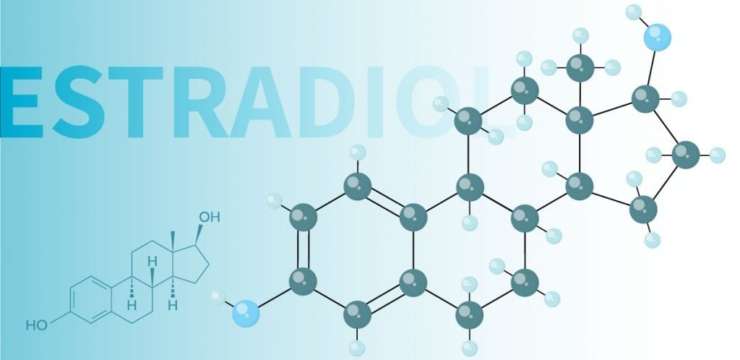
If we take a look at breast cancer, there are common roads that everything links back to. Those roads are an increase in estrogen or activation of the estrogen receptor in the mammary epithelial cell. This is important because there are triggers in our lives that have estrogen or stimulate estrogen production, ultimately leading to an increased risk of developing breast cancer.Â
FactorsÂ
Environmental factors like pollutants and stress are highly associated with breast cancer. For example, the pollutant xenoestrogen has estrogen-like activity. From here, when women age and move towards menopause, they produce more estrogen. When there is a relative increase in natural estrogen plus the pollutants sending the body false signals, we see a relative increase in estrogen and stimulation through the estrogen receptors in the body. A great way to decrease these pollutants and fake hormones is to switch to all-natural products. These fake hormones are being stored in products like:
Aluminum deodorantÂ
Body wash
ShampooÂ
Laundry detergentÂ
Air freshenersÂ
And moreÂ
The other factor mentioned above is stress. The stress that is being referred to in this instance is emotional stress. The type of stress we do not have as much control over (aka physical). The reason we take a look at stress is that stress leads to more cortisol being released throughout the body. More stress can lead to less melatonin production. Consider the fact that those with breast cancer have a decrease in melatonin. Over time, a decrease in melatonin results in an upregulation of estrogen receptors, leading to an increase in estrogen. Ways to help reduce stress include:
MeditationÂ
ExerciseÂ
GroundingÂ
Deep breathing techniquesÂ
DNA
As we have learned over the years, the DNA we are born with is not the DNA we die with. Yes, we are given a specific set of genes when we are born but our environmental factors have been proven to alter the expression of these genes. When we have a highly oxidized reactive molecule, it can adduct with DNA. This ultimately leads to DNA adduct formation that clips portions of our DNA out causing a mutation. Over time, with enough mutations, we can see patients develop cancer and their immune system is unable to fight it off as it no longer works properly.Â

– If you have enjoyed this video and/or we have helped you in any way please feel free to subscribe and share us. Thank You…
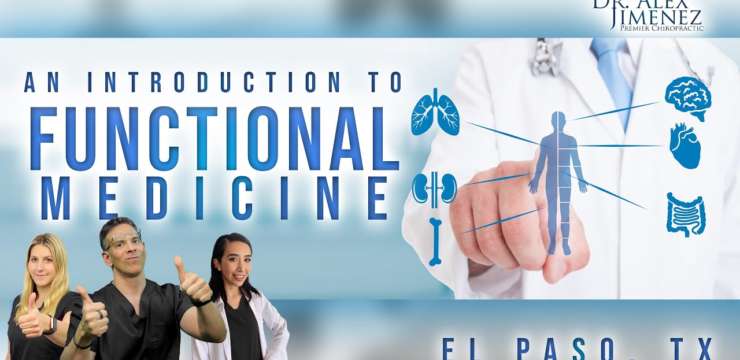
In this episode, Dr. Alex Jimenez brings to you this presentation titled “An Introduction to Functional Medicine” where Medical Specialist will help us distinguish the…

In this edition of our nutrition podcasts, Dr. Alex Jimenez, Master Nutritionist Ana Paola Rodriguez Arciniega, and Senior Health Coach Kenna Lee Vaughn discuss the…

In this new functional medicine episode Dr. Alex Jimenez brings to you this part 3 of a presentation titled “Immune Dysfunction and Inflammation: A primary…

Welcome to our Functional Medicine episodes brought to you by Dr. Alex Jimenez. In this episode, we have part 2 of a presentation by a…
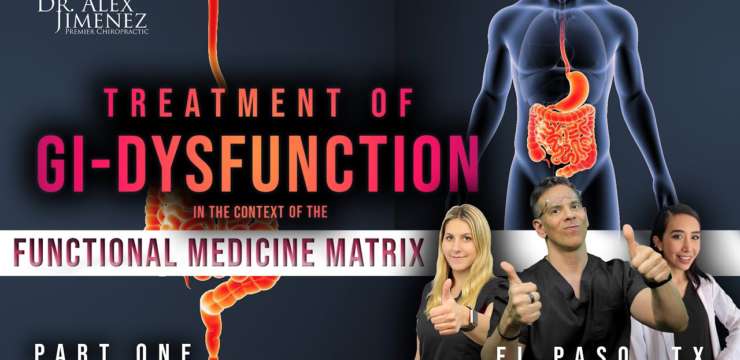
Welcome to our new Functional Medicine series, brought to you by Dr. Alex Jimenez. In this edition, we feature part one of a presentation titled…

We want to welcome you to our podcasts, in this edition we will be introducing the Nutrition and Nutrigenomics Team. Dr. Alex Jimenez, Senior Health…

Dr. Alex Jimenez brings to you this Functional Medicine presentation titled “Food Allergies, Hypersensitivity, and Intolerances: Diagnosis and Treatment†featuring Naturopathic Specialists. who will present…
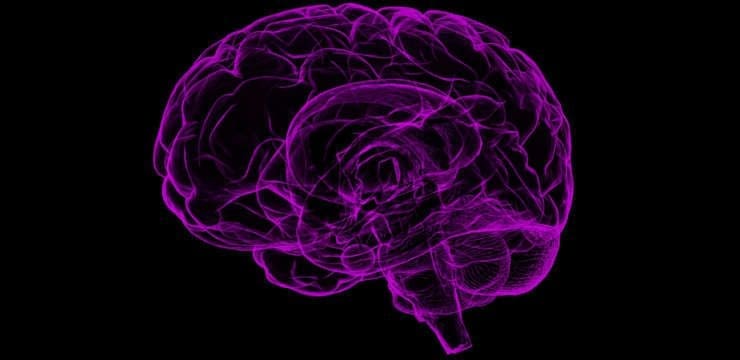
Alzheimer’s disease is one that impacts many lives. There are multiple factors that go into the diagnosis of Alzheimer’s, some people’s diet, environment, genetics, head trauma and more. The classic symptoms include loss of memory, memory issues that begin to disrupt everyday life (such as where you keep your coffee mugs), difficulty completing familiar tasks in the workplace or home, confusion with time or place, and trouble understanding images.Â
Normal Aging vs Alzheimer’sÂ
With normal aging, we see brain atrophy, some neurotransmitter loss, and oxidative damage. These changes occur but they do not interfere with daily tasks or quality of life. To determine the difference, we can perform a simple test in the office that consists of a few questions. The score will determine if the aging of the brain is within normal limits.Â
Synapse LossÂ
As mentioned above, head trauma can lead to Alzheimer’s as it increases synapse loss. Things that contribute to head trauma include physical trauma, stroke, hypertension, and diabetes. Additionally, high cholesterol, high homocysteine, low exercise, and specific genes.Â
Genes
Although we are unable to change the genes we were born with, we can alter their expression. There are steps that we can take to alter these genes to express in a positive manner rather than negative. This can help slow down the progression or onset of Alzheimer’s. The genes we specifically look at in reference to Alzheimer’s are those that impact lipid metabolism, inflammation, and are dopaminergic and neurotrophic. These include:
CRP
IL-6Â
TNFAÂ
COMTÂ
BDNFÂ
We have the ability to perform genetic testing through DNA Life to assess your genes and your susceptibility. DNA Mind provides an identification of the level of impact of any genetic variant. It also provides us with a broken down explanation of the genes and their specific impact on the biochemical area and mental health. Additionally, this test not only reports on Alzheimer’s disease but also dementia, cognitive decline, addictive behavior, risk-taking behavior, and mood disorders. A sample report can be seen below:Â
Â
Lifestyle : InBodyÂ
As previously mentioned, we see a direct link between lack of exercise, poor nutrition, and Alzheimer’s disease. We are able to create personalized nutrition plans for your body as well as determine other predisposing factors with the help of the InBody 770 system. This advanced machine provides a great deal of information for us regarding the patient. We track patients Anthropometric measurements in order to determine their lean muscle mass, fat density, visceral fat (fat surrounding the organs- a key indicator of disease risk), water percentage, and height and weight. We measure our patients every 8 weeks and keep a detailed record. These reports are great indicators for health and also assess inflammation and edema. There is more information regarding the InBody below.Â
[embedyt] www.youtube.com/watch?v=N3_BEhgJCGc%5B/embedyt%5D
InBody_E_Book.pdf
GENETIC TESTING IS AVAILABLE NOW AND PROVIDES US WITH MORE INFORMATION THAN EVER BEFORE. WITH THIS INFORMATION AND THIS TECHNOLOGY, WE ARE ABLE TO CREATE PREVENTABLE PLANS GEARED TOWARDS YOU. I HIGHLY RECOMMEND GETTING TO KNOW AND UNDERSTAND YOUR GENES. -KENNA VAUGHN, SENIOR HEALTH COACHÂ
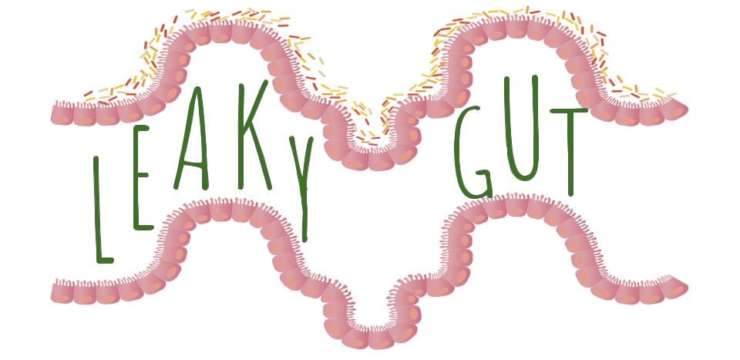
The link between inflammation and many diseases was made less than 15 years ago. With that being said, there is still so much we are constantly finding out about the connection. Inflammation and disease can be thought of as a circle, the relationship is complex and goes both ways. Inflammation is not always felt by the patient. Majority of inflammation happens in the gut and digestive tract. This leads to something we call “Leaky Gut†or Intestinal Permeability.Â
Contributing factors to systemic inflammation include:
SmokingÂ
Environmental pollutantsÂ
Overweight
Sedentary lifestyleÂ
Stress
Diet
It is important to keep in mind that not all inflammation is bad. In fact, we need inflammation. Inflammation is a natural and normal response within the body to help repair damaged areas. However, when the inflammation gets excessive, we begin to see problems arise. The first steps we take is to eliminate and reduce the contributing factors of systemic inflammation. Smoking includes second hand smoke as well environmental pollutants. These create excessive inflammation in the body and we are unaware of what we are truly breathing in. A sedentary lifestyle and being overweight typically go hand in hand. Adipose tissue or fat cells produce inflammatory chemicals at a faster rate than lean muscle mass. When we live a sedentary lifestyle and begin to carry around added weight, we are adding fuel to the inflammatory fire. Lastly, stress can add unnecessary inflammation to the body by causing cortisol to release into the adrenal pathways. Â
Nutrition
Anti-Inflammatory diets are constantly circling around. There have been studies with benefits linking to diets that include healthy fats, low glycemic, wheat-free, Mediterranean, ph-balanced, and antioxidants. One thing that all healthcare providers seem to have in common is agreeing that nutrition is linked to inflammation and pro-inflammatory foods include trans fats, SFA, ARA, and high glycemic loads.Â
In order for a patient to be on a true anti-inflammatory diet that helps recover their gut and reduce inflammation, lab work is needed. The reason is that one food that is anti-inflammatory in one individual, might be causing major irritation and inflammation in another.Â
LabsÂ
To start off, we run a Food Sensitivity Test from Vibrant America. This tests to make sure they do not have any specific IgG reactions to foods consumed, like wheat, vegetables, fruits, and more.

Once again, traditional Chinese medicine and herbal medicine are coming back to treat chronic conditions’ underlying cause potentially. Consequently, Chelidonium majus L., commonly known as…

After all of these years, I am happy to announce that the Texas Supreme Court has finally made a decision regarding the Texas Board of…

Migraines and Fibromyalgia have one thing in common, they are both due to mitochondrial dysfunction. More often than not we see those with mitochondrial dysfunction suffering from more than one type of discomfort. The first thing we do is take a detailed history, to truly understand the patient’s history, environment, previous treatment plans, and symptoms.Â
Mitochondrial function is a necessity for the body to perform properly. There have been studies that show that magnesium and malic acid is needed for mitochondrial function. In fact, giving magnesium malate 2 tabs, three times a day showed decreased pain in fibromyalgia patients. Magnesium also helps as a laxative and is often helpful in cleansing the gut and beginning to restore gut health. Another step we take to restore gut health is to perform a food sensitivity test to make sure they do not have any specific IgG reactions to foods consumed in their daily diet. We use the Food Sensitivity Test from Vibrant America. Genes
There is research supporting that individuals who have an MTHFR gene mutation are more susceptible to instability in the central neurovascular system. Those who have a MTHFR gene mutation can not convert folate to methylfolate. This is linked to migraines, mood problems, and increased susceptibility for fibromyalgia. For more information regarding MTHFR, please refer to GeneCards: MTHFR.
Nutrition / SupplementsÂ
After analyzing lab work, and when implemented correctly, there are many foods and supplements that can help patients with symptoms associated with mitochondrial dysfunction.Â
Some foods to eat include:Â
almonds and other nuts and seeds
broccoli
beans
tofu
oatmeal
dark leafy greens
Avocado
The supplements we use are from Biotics Research and include:
Bio-Multi Plus
ProMulti Plus
Bio D MulsionÂ
B12-2000
Optimal EFA caps
A.D.P

The growing evidence about the clinical application of naturally occurring phytochemicals has revealed multiple phytochemicals’ detoxifying properties. Curcumin, commonly known as turmeric, has previously reported…

Botanical plants and natural remedies are used worldwide to provide flavor or spice to our food. Commonly, we forget that food is medicine- even better,…